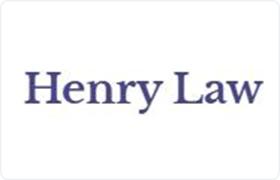Long Island City Collection Lawyer, New York
Sponsored Law Firm
-
 x
x

Click For More Info:
-
Henry Law
825 E Gate Blvd Suite 106 Garden City, NY 11530» view mapEmployment, Bankruptcy, Criminal, FMLA, Civil The Difference.
We practice in an array of practice areas, and employ modern technology in helping you achieve your legal objectives.
800-974-2431
Daniel Schlanger
✓ VERIFIEDBankruptcy & Debt, Collection, Credit & Debt, Employee Rights
Daniel Schlanger is a partner at Kakalec & Schlanger, LLP, where he heads the firm's consumer practice. His practice focuses on representing victims o... (more)
FREE CONSULTATION
CONTACTDavid Schachter
Business Organization, Collection, Banking & Finance, Bad Faith Insurance
Status: In Good Standing
FREE CONSULTATION
CONTACTWilliam J. Cortellessa
Estate Planning, Consumer Protection, Corporate, Collection
Status: In Good Standing
FREE CONSULTATION
CONTACTThomas Bernard Grunfeld
Collection, Commercial Bankruptcy, Construction Liens, Consumer Protection
Status: In Good Standing
FREE CONSULTATION
CONTACTKevin C. Mallon
Bankruptcy & Debt, Credit & Debt, Identity Theft, Collection, Consumer Protection
Status: In Good Standing
FREE CONSULTATION
CONTACTRichard Pu
Corporate, Business Organization, Credit & Debt, Collection
Status: In Good Standing Licensed: 47 Years
Michael C. Deutsch
Class Action, Employment, Securities, Collection
Status: In Good Standing Licensed: 32 Years
John D. Singer
Class Action, Employment, Securities, Collection
Status: In Good Standing Licensed: 32 Years
 Chauncey Henry Garden City, NY
Chauncey Henry Garden City, NY Practice AreasExpertise
Practice AreasExpertise

